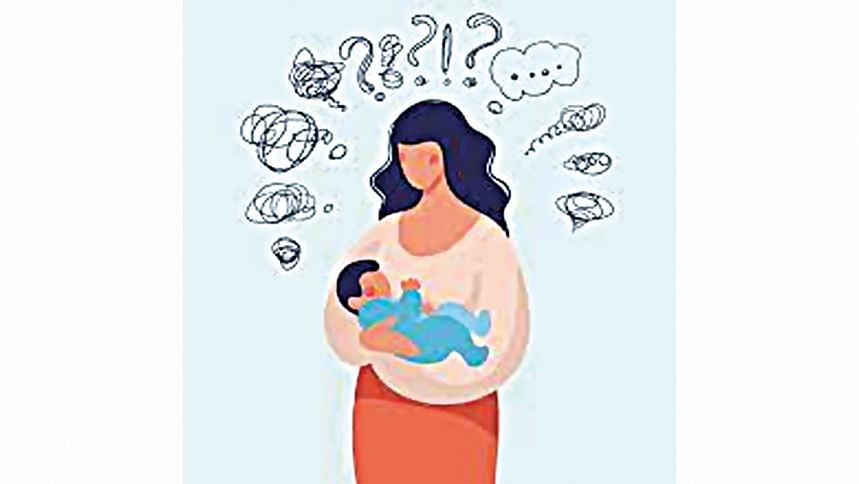Help new mothers feel less sad by encouraging them to breastfeed!

Postpartum depression (PPD), often known as "baby blues," may occur among new mothers after giving birth. PPD can make a mother depressed, hopeless, lose interest in activities, and have problems connecting with their infant.
PPD is caused by the following factors:
Pregnancy boosts oestrogen and progesterone production. A rapid decline in these hormones after giving birth may increase PPD risk. Changes in the levels of neurotransmitters like serotonin and dopamine, which regulate mood, might also alter a woman's emotions.
Remember that postpartum hormone fluctuations affect women differently. Stress, a lack of support, prior mental health issues, and important life events may all induce PPD.
How breastfeeding helps reduce PPD:
Breastfeeding helps both mother and child. Breast milk gives the finest nourishment and antibodies to prevent babies from major childhood illnesses and makes mothers happier, calmer, and less worried. Breastfeeding releases prolactin and oxytocin. Researchers believe oxytocin relaxes mothers and prolactin lessens their anxiety.
Researchers found that PPD was lowest in women who wished to and could breastfeed. Thus, breastfeeding requires a predetermined attitude, and counselling may help with this. The WHO and other experts advise breastfeeding babies from the first hour.
Patients with PPD should talk to their doctors about their worries. PPD can be treated with medication, therapy, and counselling. Finding reliable people and getting their support are also important. PPD can often be reduced with the help of therapy and peer support.
E-mail: [email protected]

 For all latest news, follow The Daily Star's Google News channel.
For all latest news, follow The Daily Star's Google News channel. 



Comments